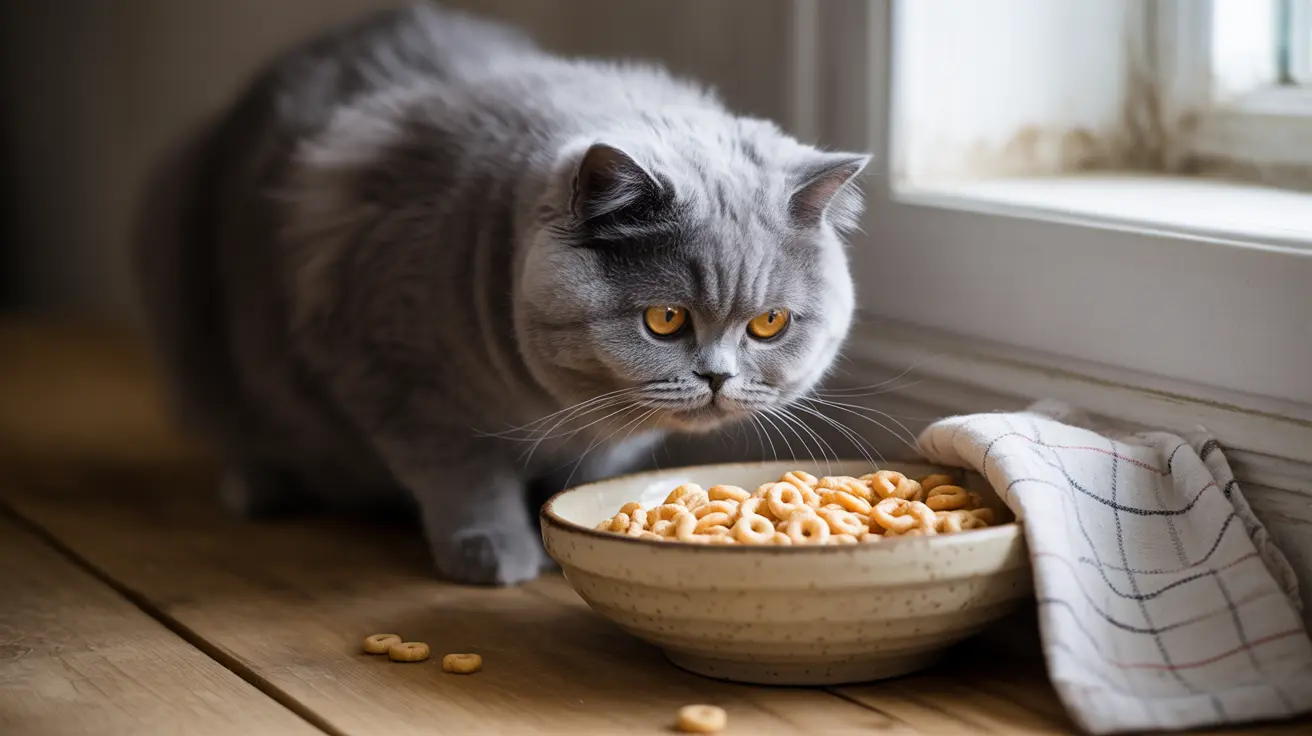Understanding Cats' Nutritional Needs vs. Cheerios
Cats are obligate carnivores, meaning their bodies are designed to process and utilize nutrients from animal-based proteins. Their digestive systems aren't equipped to handle processed grains and carbohydrates, which make up the majority of Cheerios' ingredients.
A single serving of Cheerios contains primarily carbohydrates, with minimal protein that isn't biologically appropriate for cats. While not immediately harmful, these empty calories can contribute to weight gain and provide no nutritional benefit to your feline friend.
The Risks of Different Cheerios Varieties
Plain Cheerios
Regular Cheerios, while not toxic, offer no nutritional value for cats. The high carbohydrate content can contribute to obesity and diabetes when consumed regularly.
Flavored Varieties
Flavored Cheerios pose more significant risks:
- Chocolate Cheerios contain theobromine, which is toxic to cats
- Honey Nut Cheerios have excessive sugar content
- Multi-grain varieties may contain ingredients that cause digestive upset
Potential Health Complications
Even occasional Cheerio consumption can lead to several health issues:
- Digestive problems including vomiting and diarrhea
- Weight gain from empty calories
- Potential allergic reactions to grains
- Nutrient deficiencies if used to replace proper cat food
- Blood sugar irregularities from added sugars
Better Alternatives to Cheerios
Instead of Cheerios, consider these veterinarian-approved treats:
- Commercial cat treats formulated for feline nutrition
- Small pieces of cooked, plain chicken or turkey
- Freeze-dried meat treats
- Specialized dental treats designed for cats
What to Do If Your Cat Eats Cheerios
If your cat has consumed a few plain Cheerios, there's usually no cause for immediate concern. However, monitor them for any signs of digestive upset. If they've eaten flavored varieties, especially chocolate, contact your veterinarian immediately.
Frequently Asked Questions
Can cats safely eat regular Cheerios without any harm?
While a single plain Cheerio won't typically cause immediate harm, they're not safe as regular treats. Cheerios provide no nutritional value for cats and can contribute to health problems if fed regularly.
Why are flavored Cheerios like chocolate or Honey Nut dangerous for cats?
Chocolate Cheerios contain theobromine, which is toxic to cats and can cause serious health problems. Honey Nut and other flavored varieties contain high levels of sugar and artificial ingredients that can lead to obesity and diabetes.
What digestive problems can Cheerios cause in cats if eaten frequently?
Regular consumption of Cheerios can cause vomiting, diarrhea, constipation, and general digestive discomfort. Cats lack the necessary enzymes to properly digest grains and processed carbohydrates.
Is it okay to give my cat Cheerios with milk?
No, this combination is particularly problematic. Most adult cats are lactose intolerant, and combining milk with Cheerios can cause severe digestive upset and diarrhea.
What are better, healthier treat options to feed my cat instead of Cheerios?
Better options include commercial cat treats, small pieces of cooked lean meat, freeze-dried meat treats, or specialized feline dental treats. Always choose treats specifically formulated for cats' nutritional needs.
Conclusion
While Cheerios might seem like a harmless treat, they're not appropriate for feline consumption. Instead of sharing your breakfast cereal, stick to nutritionally appropriate cat treats that support your pet's health and well-being. When in doubt, always consult with your veterinarian about safe treat options for your feline friend.






